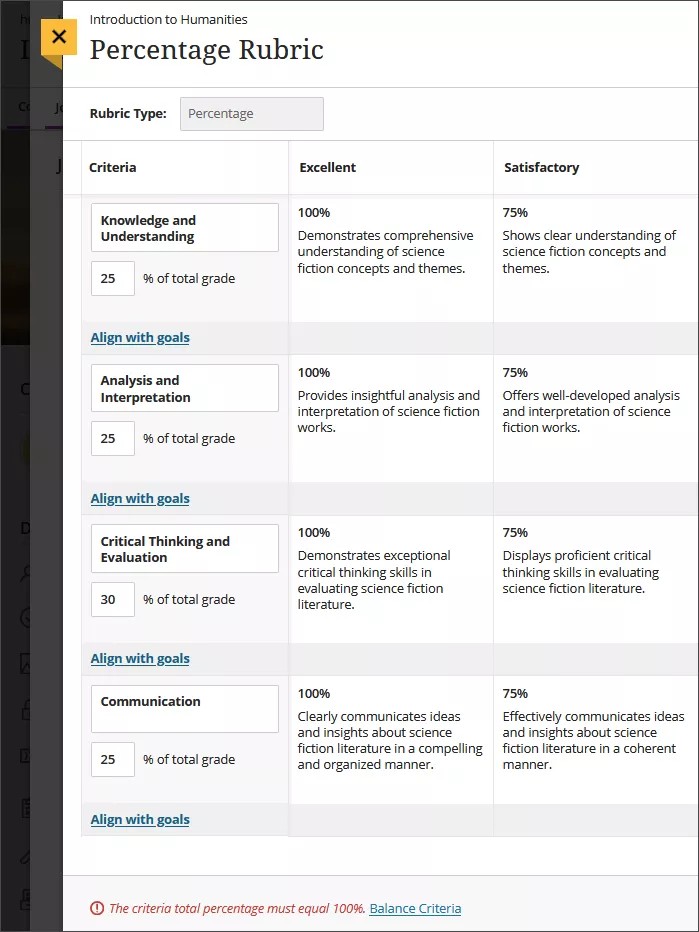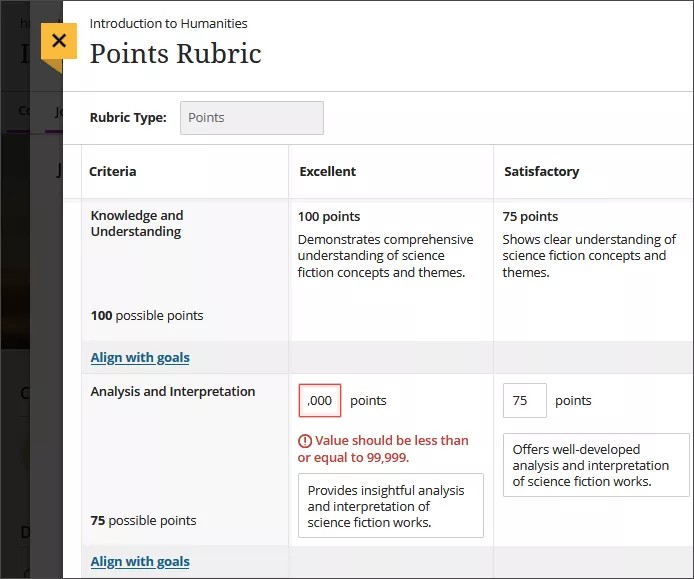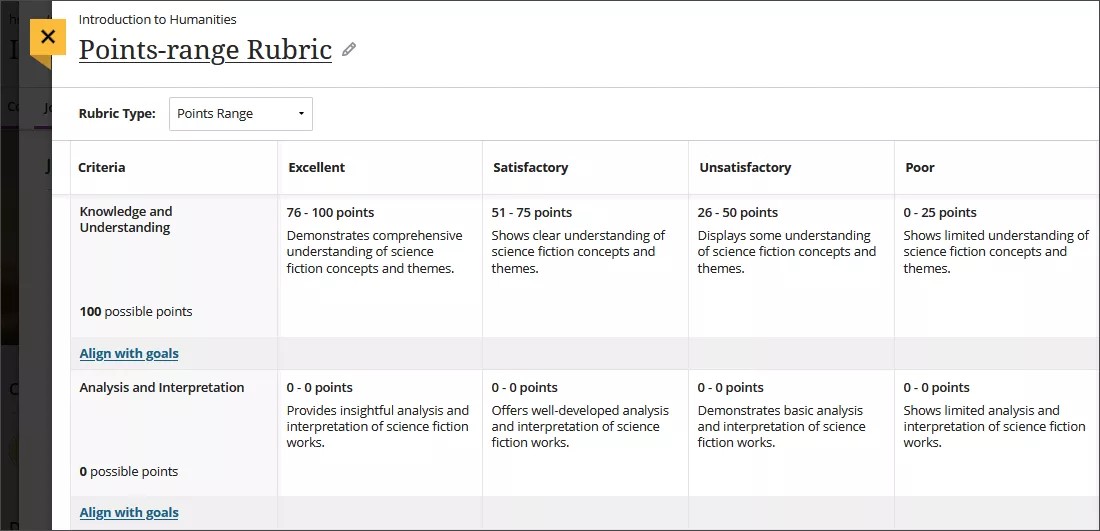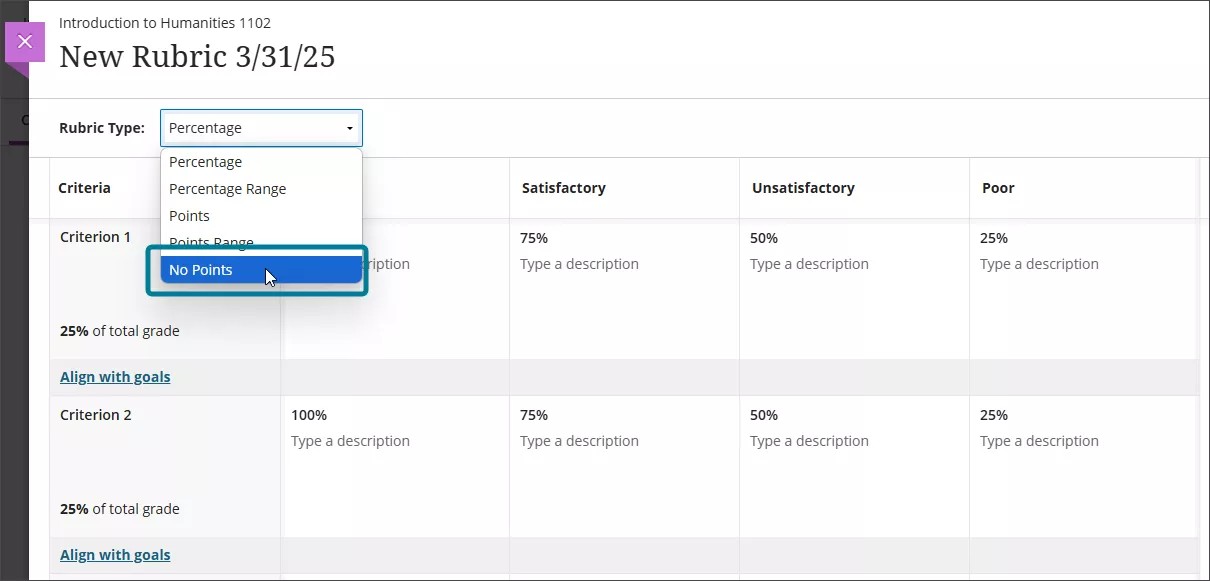Types of Rubrics
Rubric types
You can create several types of rubrics in a course:
Percentage-based rubrics
Percentage-range rubrics
Points-based rubrics
Points-range rubrics
No-points rubrics
Percentage-based rubrics
For percentage-based rubrics, the criteria total percentage must equal 100%. You may only use whole numbers. You may add rows set to 0% as long as your total percentage amounts to 100.

If the percentages don't equal 100, a warning message appears at the bottom of the screen. Select Balance Criteria next to the message to auto-adjust the percentages so that they equal 100. Or, you can manually update the percentages as needed.
For the levels of achievement, one column must have a value of 100%. You may only use whole numbers.
Percentage-range rubrics
For percentage-range rubrics, each level of achievement has a range of values. When you grade, you select the appropriate percentage level for a particular level of achievement. The system calculates the points earned by multiplying the weight times thee achievement percentage times the item points.

Points-based rubrics
For points-based rubrics, the maximum possible points should be less than or equal to 99,999. You may only use whole numbers. You may add rows set to 0 as long as your total points are less than or equal to 99,999.

Points-range rubrics
For points-range rubrics, the maximum possible points should be less than or equal to 99,999. You may only use whole numbers. You may add rows set to 0 as long as your total points are less than or equal to 99,999. The point range for each criterion must go from a lower range to a higher range.

No-points rubrics
For no-points rubrics, instructors can evaluate student work qualitatively based on specific criteria and feedback rather than numerical values. This rubric type emphasizes detailed assessment and guidance without assigning a numerical score.
